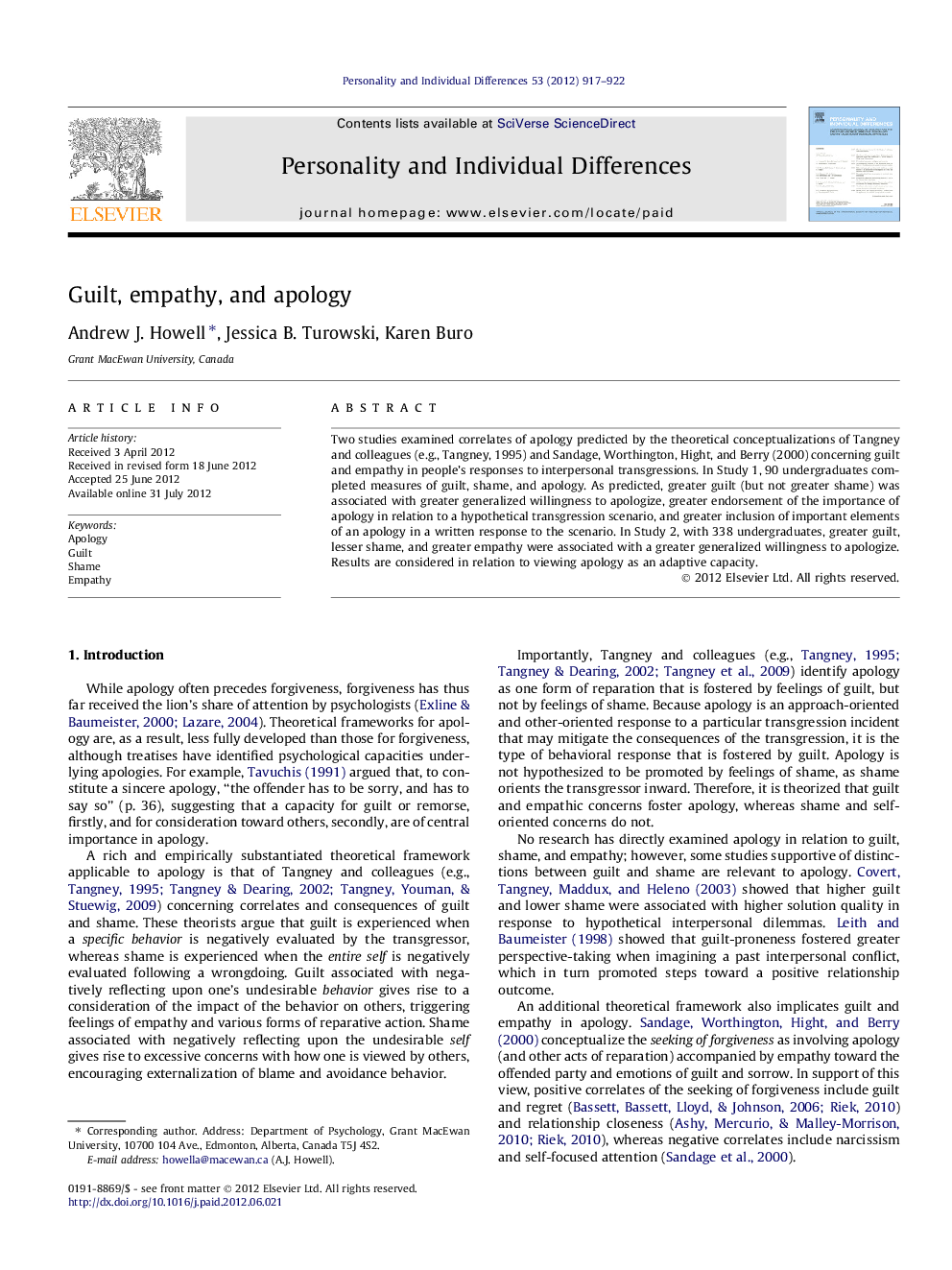| Article ID | Journal | Published Year | Pages | File Type |
|---|---|---|---|---|
| 891390 | Personality and Individual Differences | 2012 | 6 Pages |
Two studies examined correlates of apology predicted by the theoretical conceptualizations of Tangney and colleagues (e.g., Tangney, 1995) and Sandage, Worthington, Hight, and Berry (2000) concerning guilt and empathy in people’s responses to interpersonal transgressions. In Study 1, 90 undergraduates completed measures of guilt, shame, and apology. As predicted, greater guilt (but not greater shame) was associated with greater generalized willingness to apologize, greater endorsement of the importance of apology in relation to a hypothetical transgression scenario, and greater inclusion of important elements of an apology in a written response to the scenario. In Study 2, with 338 undergraduates, greater guilt, lesser shame, and greater empathy were associated with a greater generalized willingness to apologize. Results are considered in relation to viewing apology as an adaptive capacity.
► Theories have predicted that guilt and empathy are related to apology. ► Relationships were examined among dispositional guilt, shame, empathy, and apology. ► Guilt (but not shame) and empathy emerged as predictors of apology. ► Implications for conceptualizations of apology are discussed.
